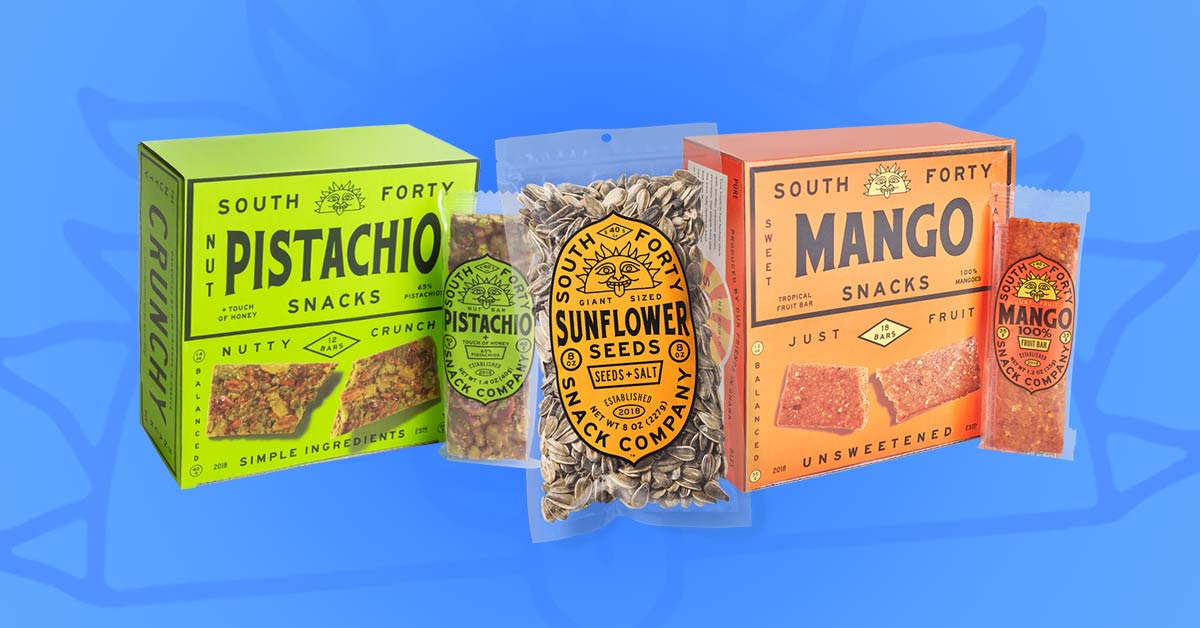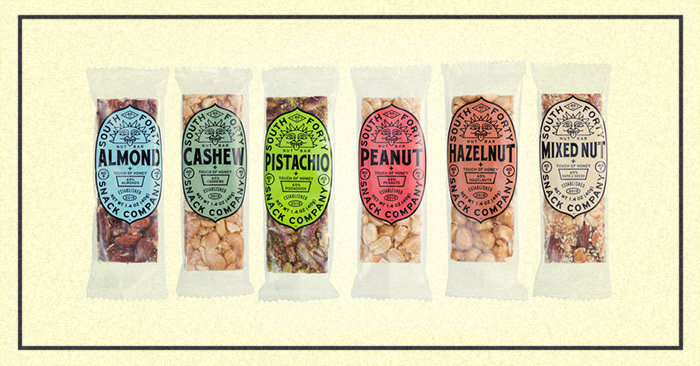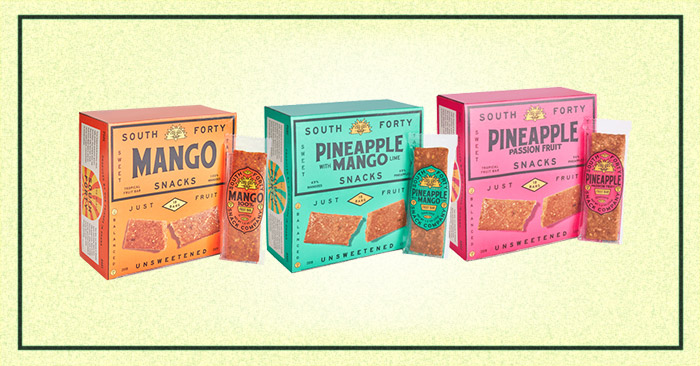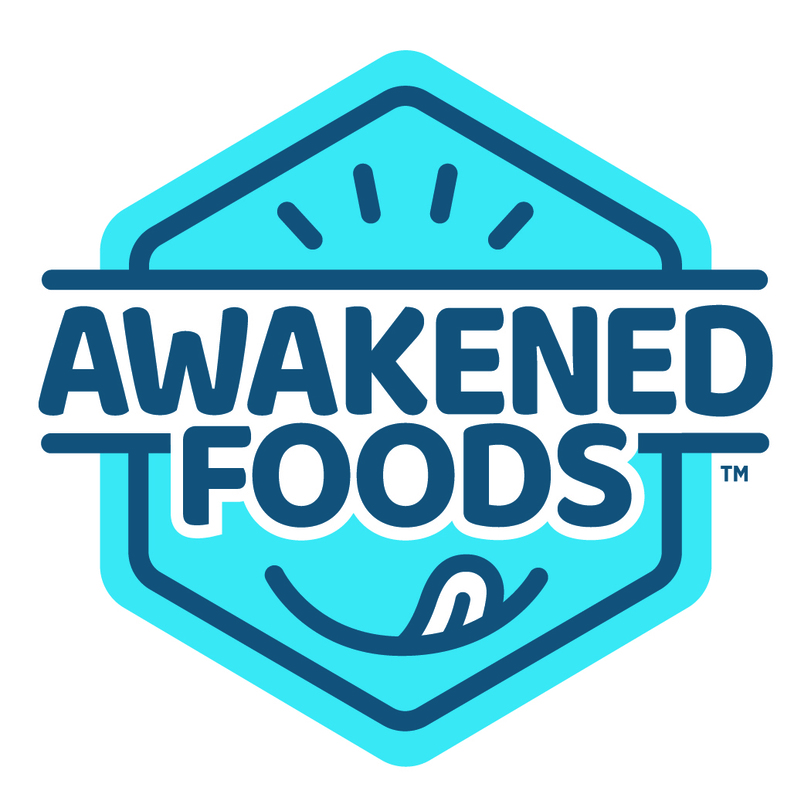How South 40 Snacks Scaled Through A Unique Sourcing Model

Sunflower seed slinging started off as a hobby for South 40 Snacks co-founder and CEO Josh Schroeter, but over the course of four years the business has grown with two additional product lines and placements in thousands of conventional and natural grocers across the country. How did a single SKU of sunflower seeds evolve into a new clean label snack platform?
As it turns out, selling sunflower seeds is complicated, Schroeter explained. Founded in 2019, he set out initially a simple plan: import the brand’s unique variety of seeds, roast, salt, pack and sell them. It would be a “one SKU company… it could just be a moneymaker for me,” he said.
But the seed space was tough, especially during the pandemic and height of supply chain bottlenecks, in addition to limited options for a co-manufacturing roasting partner. So he realized if he was going to sustain the sunflower seed line, South 40 Snacks would need to grow with an easier anchor product.
“It led to something spectacular that I had no intentions of ever doing,” Schroeter emphasized, who previously co-founded, led and sold nut brand Sahale Snacks to J.M. Smucker in 2014. “What happened was I created a brand – because you’ve got to create a brand even if you’re a one SKU company, and you’ve got to have an ethos and a mission, a purpose – and it turns out that what we came up with is highly extensible and people connect with it.”

That hobby has since evolved into a “lifestyle business,” curated with three distinct product lines that Schroeter has encountered while traveling the world. Those include nine nut bars and three varieties of fruit bars with all of the items sharing one thing in common: extremely simple ingredient labels.
“Food doesn’t need to be so complicated and snacks really don’t need to be so complicated,” Schroeter said. “A lot of our predecessors took simplicity to a new level whether it’s RXBar with their whole ‘No BS’ slogan or KIND bar with the first sort of transparent packaging. But they’re [both] still not that simple [of product formulations].”
South 40’s nut bars contain only four ingredients – the respective nut variety, glucose syrup, sugar and honey. The brands fruit bars solely contain the fruits listed on the front label: Mango, Pineapple Mango and Pineapple Passionfruit. The products sell for $26 to $30 per 12-count box, depending on the variety. But Schroeter doesn’t take credit for creating any of these uniquely “simple and transparent” products, just selling them.
He discovered the nut bars while in Greece and connected with the family that has made them “for decades;” South 40 Snacks now holds the exclusive license to sell the product in North America. Similarly, the brand’s fruit bars are produced by a farming partner in Ghana and West Africa who is focused on sustainability, biodiversity and community building, Schroeter explained.

“The reality is, this is a lifestyle business for me personally… I just love traveling and I enjoy discovering new food and meeting people,” said Schroeter. “People talk about lifestyle brands and stuff… maybe it will develop into a lifestyle brand, but at this stage it’s a lifestyle [built] business.”
That lifestyle business has recently expanded to 1,900 Kroger stores nationwide where its secured placement in the produce set. The brand is also sold at select Safeway/Albertsons and Whole Foods stores, Market Basket, Roche Bros, Sprouts, Bristol Farms and more. In addition to grocery, South 40 also recently launched at Hudson News in many airports nationwide and is going after college and university Barnes and Nobles stores.
Those tactics all harken back to insights Schroeter developed while building Sahale over a decade ago. In addition to growing the nut snack brand in produce, where it wouldn’t be on shelf and in contrast with commodity offerings, Schroeter also built the business via alternative channels like airports and university campuses.
That merchandising strategy was executed to ensure his products stand out for their simple ingredient lists and appear differentiated to consumers from existing commodity alternatives – whether that be seeds, nuts or bars. But it is also integral to building the brand’s image in the “oversaturated” bar category, Schroeter explained, where most of its competitors have been bought out by large CPGs.
“Most bars are made by co-manufacturers in the Midwest or somewhere – they’re made by some company that punches out bars for different manufacturers and they do all the purchasing of the ingredients too,” Schroeter said. “There literally is no story behind the ingredient, but we have a story behind every single one of our nuts and fruits.”
As he continues to grow the business, that anti-commodity stance will guide the company’s future expansions. Currently, he said, it is testing a broader reaching “South 40 provisions” arm focused on varieties of seeds, nuts and fruits that are uncommon to U.S. consumers, differentiated from commodity offerings and sourced from unique origins.
But that expansion is still in pilot mode and Schroeter is currently working to determine how to differentiate in the crowded nut category: “Today we’re a bar company and that’s where most of our business is,” Schroeter said. “I’ll only really do [the provisions line] if it’s differentiated.”


















